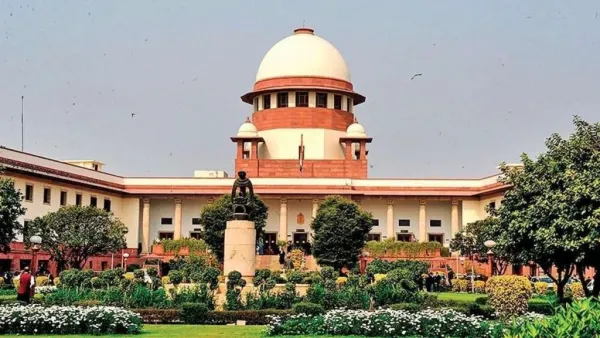
Supreme Court Pakistani nationals in india Temporary restriction on exile
The petitioner claimed – we have valid Indian passports and Aadhaar cards
Family has been living in Srinagar since 2000, currently residence in Bengaluru
Applicable in court before being sent to Wagah border
Solicitor General said – Go to the concerned authority
New Delhi: Under the steps taken by the Government of India after the Pahalgam terror attack Pakistani nationals in india A tough stance has been adopted. But in the meantime, the Supreme Court has taken an important decision and has stopped the exile of six Pakistani nationals. The matter caught fire when a Kashmiri youth Ahmed Tariq Batt claimed in his petition that he and his family were Indian citizens.
Ahmed Tariq's lawyer Nand Kishore said in the court, “We were being taken to the Wagah border without any proper investigation. We have all the Indian documents. Still we started the process of deportation.” This case has become not only sensitive, but also serious human rights questions for the judiciary.
In the petition, Ahmed said that his family had come to India from Mirpur in Pakistan Occupied Kashmir in 2000. His mother Nusrat Batt is born in Srinagar, while father Tariq Mashkur is a resident of Batt Pok. Ahmed himself stayed in Mirpur till 1997, but after that the family came to Srinagar and settled there.
The petitioner says that he has been living in India for years. He has taken education here, is working in the jobs here and has been fully created in the social fabric of India. Still them Pakistani nationals in india As being classified as being classified.
The Solicitor General informed the court that the petitioners should take the case to their citizenship to the appropriate administrative officials. The Supreme Court agreed with this, but at the same time stopped the process of exile.
Experts believe that no person can be deported only on the basis of estimates or doubts. If they have valid Indian documents, they should be considered an Indian citizen, unless the court or government proves anything else on the basis of any concrete evidence.
This entire episode has brought out the complex questions to citizenship and identity in India. Especially in a sensitive area like Jammu and Kashmir, where people cross the border and come to India and have been absorbed in the system here for years.
The temporary relief given by the Supreme Court in this case is a ray of hope for all the citizens whose identity has been questioned. This case is an example of how the justice system can become the last support in a democratic country.
They cannot be deported until the petitioners complete the appropriate administrative process. This gives a clear indication that Pakistani nationals in india It is mandatory to consider both legal and human aspects before taking any steps about.